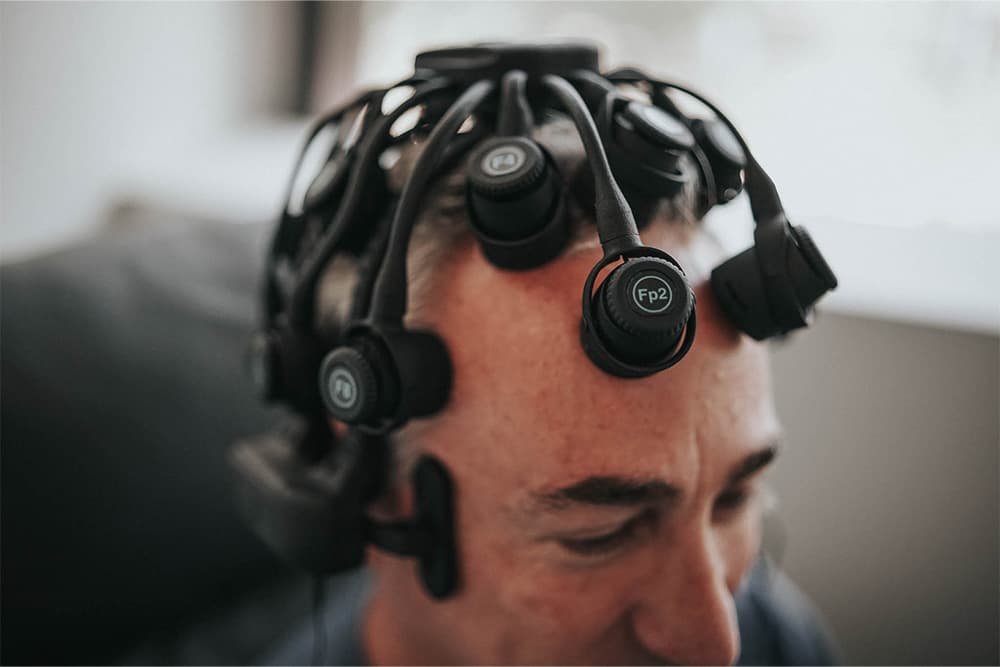
Mental Health Counseling
IMPROVE YOUR MENTAL HEALTH AND WELLBEING WITH PH LABS MENTAL HEALTH COUNSELING, AND GET THE CARE YOU DESERVE.
Energy &
Vitality
Stress & Relaxation
Mental Clarity & Focus
Performance & Recovery
Weight Management
Is Mental Health Counseling right for me?
"Mental health counseling is essential for improving emotional well-being, building resilience, and developing coping strategies. Addressing mental health concerns early can lead to better outcomes and help individuals lead more fulfilling, balanced lives."
— Dr. Stephen Ilardi, Clinical Psychologist and Author of The Depression Cure
pH Labs Counseling gives you a safe and supportive space to better understand your thoughts, feelings and behaviors that may be putting up roadblocks to fully enjoying your life and achieving your goals. Working with our licensed psychologists, you can learn how to better manage stress, change unhealthy habits and behaviors, and improve your relationships.
Why Mental Health Counseling Matters More Than Ever
In the past, mental health counseling — despite its proven positive outcomes — was often dismissed as nothing more than "talk therapy." Many people who could have greatly benefited from it found reasons to avoid it, ranging from embarrassment to believing that friends and family were enough to help overcome mental health challenges.
Today, however, ongoing research increasingly reveals a strong scientific foundation behind mental health counseling's effectiveness. Neuroscientists have found that our experiences can profoundly affect both the structure and function of the brain. Traumatic events, chronic stress, and even everyday learning experiences can change our brain chemistry. Sometimes these changes lead to resilience and growth, but other times, they contribute to mental health challenges that negatively impact our well-being.
At pH Labs, Mental Health Counseling is designed to help rewire and strengthen your brain’s pathways to promote healing and growth. By replacing unhealthy thoughts and behaviors with healthier ones, counseling can help modify brain structure in a positive way.
In fact, studies show that counseling can be just as effective as medication in treating certain conditions, such as anxiety disorders and obsessive-compulsive disorders. Through evidence-based therapies, counseling reinforces healthier patterns, supports positive brain chemistry changes, and equips you with crucial skills — such as recognizing emotional triggers and making healthier choices in response.
If you're ready to experience real, science-backed change, we’re here to help.
-

Dr. Tracy Latz
MD
INTEGRATIVE PSYCHIATRIST | CELL BIOLOGIST | HOLISTIC PRACTITIONER
Mindset & Mental Health
Integrative Psychiatry
Spiritual Growth
Personal Growth & Transformation
Relationships
Life Purpose & Fulfillment
Medical Qi Gong
Intuitive Art -

Dr. Marion Ross
PHD
TRANSFORMATIVE PSYCHOTHERAPIST | HOLISTIC HEALER | CO-FOUNDER OF SHIFT YOUR LIFE
Mindset & Mental Health
Transpersonal Psychology
Spiritual Growth
Personal Growth & Transformation
Relationships
Life Purpose & Fulfillment
Medical Qi Gong
Energy Medicine
Sound Healing -

Jonathan Stein
HLC, CDT, CTP
HOLISTIC MENTAL HEALTH | LIFE COACH
Mindset & Mental Health
Spiritual Growth
Personal Growth & Transformation
Relationships
Life Purpose & Fulfillment
Life Transitions
Enlightened Activism -

Dr. Jessica T. Wei
MD, IFMCP, ABOIM
FUNCTIONAL MEDICINE PRACTITIONER | HOLISTIC LIFE COACH
Mindset & Mental Health
Spiritual Growth
Personal Growth & Transformation
Relationships
Women's Health
Holistic Health
Integrative Medicine
Functional Medicine
Life Purpose & Fulfillment
Therapy 101: What Kind is Right for You?
-
Cognitive Behavioral Therapy (CBT):
Challenges negative thinking patterns
Encourages healthier actions based on thoughts and feelings
-
Dialectical Behavior Therapy (DBT):
Helps manage strong emotions and relationship challenges
Teaches skills for emotional regulation and communication
-
Interpersonal Therapy:
Improves relationships and emotional expression
Creates a daily schedule to support recovery
-
Eye Movement Desensitization and Reprocessing (EMDR):
Uses eye movements or body tapping to process trauma
Alters the way traumatic memories are stored in the brain
-
Internal Family Systems Therapy (IFS):
Identifies different subpersonalities within a person’s mental system
Aims to create balance by improving the interaction of these “parts”
-
Family Therapy:
Improves communication and conflict resolution within families
Often used for treating eating disorders and bipolar disorder
-
Psychodynamic Therapy:
Explores unconscious emotions and motivations
Helps understand how they affect thoughts and actions
-
Art Therapy:
Uses music, dance, drawing, and other art forms to express emotions
Promotes healing through creative outlets
-
Psychoeducation:
Educates about mental health conditions
Provides tools for supporting recovery
-
Acceptance and Commitment Therapy (ACT):
Helps individuals accept difficult thoughts and feelings rather than fighting them, and commit to actions aligned with their values.
-
Mindfulness-Based Cognitive Therapy (MBCT):
Combines cognitive therapy with mindfulness practices to help prevent depression relapse and manage anxiety.
-
Somatic Experiencing:
A body-oriented therapy focused on releasing trauma stored in the body and regulating the nervous system.
-
Narrative Therapy:
Encourages people to rewrite unhelpful life stories and separate themselves from problems, viewing issues as external rather than internal.
-
Solution-Focused Brief Therapy (SFBT):
Goal-directed and future-focused, it emphasizes solutions and strengths rather than dwelling on problems.
-
Humanistic Therapy (e.g., Person-Centered Therapy):
Focuses on self-exploration, personal growth, and achieving one’s full potential through a supportive, nonjudgmental relationship.
-
Existential Therapy:
Explores themes like meaning, responsibility, and mortality, helping clients face life’s challenges more authentically.
What People Say
The Science Behind Mental Health Counseling
Mental health counseling changes how the brain thinks, feels, and behaves — helping individuals heal from trauma, manage emotions, strengthen relationships, and unlock lasting well-being.
Want to learn more?
American Psychological Association. (2022). Neuroplasticity and the brain’s ability to heal. https://www.apa.org/news/press/releases/stress/brain-healing
Harvard Medical School. (2021). How therapy changes your brain. Harvard Health Publishing. https://www.health.harvard.edu/mind-and-mood/how-therapy-changes-your-brain
National Institute of Mental Health. (2023). Psychotherapies. https://www.nimh.nih.gov/health/topics/psychotherapies
Norcross, J. C., & Lambert, M. J. (2020). Psychotherapy relationships that work III. Journal of Counseling Psychology, 67(1), 1–11. https://doi.org/10.1037/cou0000411Want to learn more?
Most Common Questions about MENTAL HEALTH COUNSELING
-
pH Labs Mental Health Counseling is available for anyone over the age of 18. If a parent believes that this type of counseling could help their teen children, we can provide counseling with the permission of the parent.
-
Access to and integration with all pH Labs services to help you achieve your mental health goals
Improved coping skills, and stress and emotional management
Better management and symptom relief from conditions such as depression and anxiety
More self-awareness and self-knowledge
Better relationship with yourself and others
Increased wellbeing, improved sleep, more confidence
-
pH Labs Mental Health Counseling is designed to be flexible based on your unique goals and needs. This includes closed specific goals - such as overcoming a fear of flying - or more general goals such as better relationships. You are, of course, free to start, pause, or start pH Labs Mental Health Counseling to best meet your needs. But please keep in mind that our Mental Health Counseling is not designed to be a “quick fix” learning and applying healthier behaviors takes some time.
-
Progress with Mental Health Counseling does not necessarily follow a linear path with clearly defined “black and white” milestones. At times, it may even feel like two steps forward and one step back. But people tell us that they begin to realize that they are catching themselves falling into an unhealthy behavior and then knowing what positive behavior to take, or they are feeling more positive in general about life.
-
pH Labs has a team of certified and experienced Mental Health Counselors.
-
pH Labs Mental Health Counseling sessions usually last for approximately 45 - 90 minutes.

















